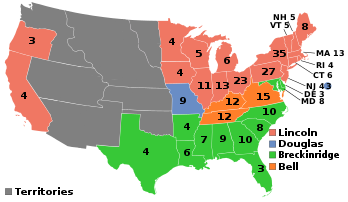Montrovant
Fuzzy bears!
This question has probably been asked. I'm not going to go back and
read 40 pages to see it.
Would this even hold up before the Supreme Court?
Our system is our system. Our system is the Electoral College. I doubt,
constitutionally, that a state could give its votes away from the will of
ITS citizens, to a popular vote.
There is already debates on some individuals selected changing their vote
from what their state has decided. If challenged, I don't think any of it
would hold up before the present SCOTUS
Yes, this is being discussed. Article 2 Section 1 of the Constitution gives state legislatures the power to choose electors how they wish. There has been some argument that it violates other parts of the Constitution: martybegins believes it violates the guarantee of a Republican form of government in Article 4, Section 4.
As far as I recall, while the USSC has ruled that states can make electors pledge to vote for a certain candidate, I don't think it has ever ruled that the electors are required to follow through on those pledges. Not every state even has a law requiring electors to vote for the winner of the election in that state, and from what I've read, no faithless electors has ever been prosecuted under one of those laws, so who knows if they would hold up?




